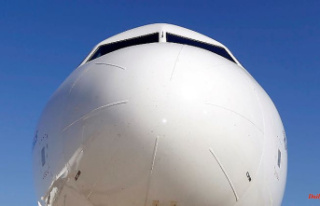The Austrian Colonel Reisner assumes that the Russian offensive in eastern Ukraine has already begun, even if it is not yet recognizable as such. Russia is bringing large amounts of material to the front and is looking for weak points in the Ukrainian defense.
The long-awaited large-scale Russian offensive in Ukraine has already begun at a low level. According to Austrian military expert Markus Reisner, there are "clear indicators that Russia has started to exert pressure on several sections along the front since the beginning of February."
It comes "above all to massive artillery attacks and advances by company and battalion combat groups," said Reisner ntv.de. On Monday, NATO Secretary General Jens Stoltenberg said that almost a year after the start of the invasion, Russia's President Putin was not preparing for peace, but was launching new offensives. When asked if this was the long-awaited major offensive, Stoltenberg said: "I think the reality is that we can already see the start (of the offensive)."
Russia is sending "thousands and thousands" of new troops to Ukraine and is willing to accept very high losses, but this is putting great pressure on Ukraine. "What Russia lacks in quality, they try to make up for in quantity," Stoltenberg said. The leadership, logistics, equipment and training of the Russian army is not as good as that of the Ukrainians, "but they have more troops". Stoltenberg warned that the faster Ukraine gets new weapons, ammunition, spare parts and fuel, the more lives could be saved.
Reisner told ntv.de that the Russian offensive has already begun, even if it is not yet recognizable as a major offensive. The so-called shaping - the preparation for a battle - is still going on. The artillery attacks served to find weak points in the Ukrainian defenses. This applies above all to the front in the Donetsk region, for example in the cities of Wuhledar, Marjinka and above all Bakhmut, which is reportedly about to be encircled by Russian troops. There are also Russian advances further north in Kreminna in the Luhansk region.
The latest update from the British Ministry of Defense states that in the past three days the Wagner mercenary force "most likely made further small advances on the northern outskirts of the embattled Donbass town of Bakhmut" and advanced as far as the village of Krasna Hora. The Ukrainian army had denied this on Monday evening. According to the Ministry of Defense in London, the Russians probably want to advance west to the Sherebets River. The daily report is based on information from the secret services. It goes on to say that the current operational picture indicates that "Russian forces are receiving orders to advance in most sectors, but that they have not concentrated enough offensive combat power on any axis to have a decisive effect".
Reisner considers this assessment "seen on the time axis", i.e. in the long term, to be too optimistic. The Russians have long been busy bringing large amounts of equipment and supplies to the front lines, says the colonel, who heads the research and development department at the Theresian Military Academy in Wiener Neustadt. This is also an indication that the offensive that is already underway is likely to become visible soon.
Ukraine has been expecting for some time that Russia will launch a major offensive on the anniversary of its attack on the neighboring country. Two weeks ago, Ukrainian President Volodymyr Zelenskyy said Russian forces were trying to make gains to show on the anniversary of their invasion on February 24. "The occupier's offensive operations on the front in the east of our country have clearly increased. The situation has worsened," he said in one of his daily video speeches.












